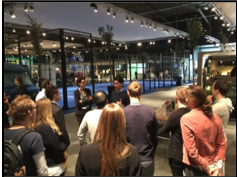Hearts, minds and wallets


Every four years in a summer with the FIFA World Cup Finals there is an embarrassment of riches for sporting fans. At this time of year, we are used to reading about the success on and off the pitch, especially for ringmasters of sport like FIFA. Times have changed. Since the corruption scandal of 2015 FIFA, sponsorship revenues have fallen by 11% from $1.63 to $1.45 billion over the four-year cycle from 2015 to 2018. Emirates, Sony, Castrol, Johnson & Johnson and Continental did not continue after FIFA World Cup 2014 in Brazil. This has allowed for a shift from European or US to Asian sponsors who are the biggest contributors to FIFA World 2018 with 39% of the revenues from The Wanda Group, Hisense, VIVO and Mengniu. Yes, the second largest dairy company in China!
For some existing and potential sponsors, there were also doubts about the staging of the 2022 FIFA World Cup Finals in Qatar. As football moves east, another opportunity for the Asian sponsors to harness the popularity of football. And beyond that, as is often the case in global sport, the ability of nations to influence and secure future sports events in their own backyard. How about a Chinese World Cup in 2030? As a strategic play, this would be an opportunity for FIFA to secure sponsors from all continents and replenish the lagging revenues. Who would not want to market their products and services in the largest market on the planet?
Whilst the FIFA World Cup Finals raised the hopes for millions of English fans that ‘football is coming home’ those dreams of a first final since 1966 were cruelly extinguished by Croatia last Wednesday. But for British retailers, football has definitely brought something home. Research indicates the UK economy will benefit by at least £1.33 billion rising to more than £2.5 billion had England reached the World Cup Final. The obvious beneficiaries include pubs, restaurants and clubs as well as new TV’s and BBQ’s as the country celebrated England’s progression to the semi-final.
No doubt sponsors and partners of the England Team such as Nike, Vauxhall, Carlsberg, Lucozade, EE, Lidl, LG, M&S and Mars will have activated their association to create a positive return on investment. And, more importantly the value of the England sponsorship will rise for future tournaments such as EURO 2020 based on a young team led by an inspiring and likeable manager called Gareth Southgate being able to sustain this level of success.
If there is one professional athlete you would not expect to ‘change direction’ it is Roger Federer who was sponsored by Nike for 20 years from the age of 16. As Wimbledon opened its 141-year-old gates tennis fans were confronted with a new brand adorning the all-white attire required to play on the hallowed grass. For a reputed $300 million endorsement over 10 years Federer will be promoting Uniqlo to his global fan base. In the words of Uniqlo’s founder and chairman, Tadashi Yanai: “Mr Federer is one of the greatest champions in history; my respect for him goes beyond sport.” It would be hard to disagree but will Federer fans be willing to trade the famous swoosh for a Japanese retailer that also sells Comptoir des Cotonniers, GU, Helmut Lang, J Brand, Princesse tam.tam and Theory?
For a man who holds as many Grand Slam titles as the number of World Cup Finals that have been played – 20 – on Sunday, there is one guarantee. Nike will celebrate the 21stFIFA World Cup Finals as winners with Croatia or France. Sadly, the same cannot be said for Uniqlo and Federer. This new partnership will be a good test of the hearts, minds and wallets for millions of fans around the world.
Only time will tell……